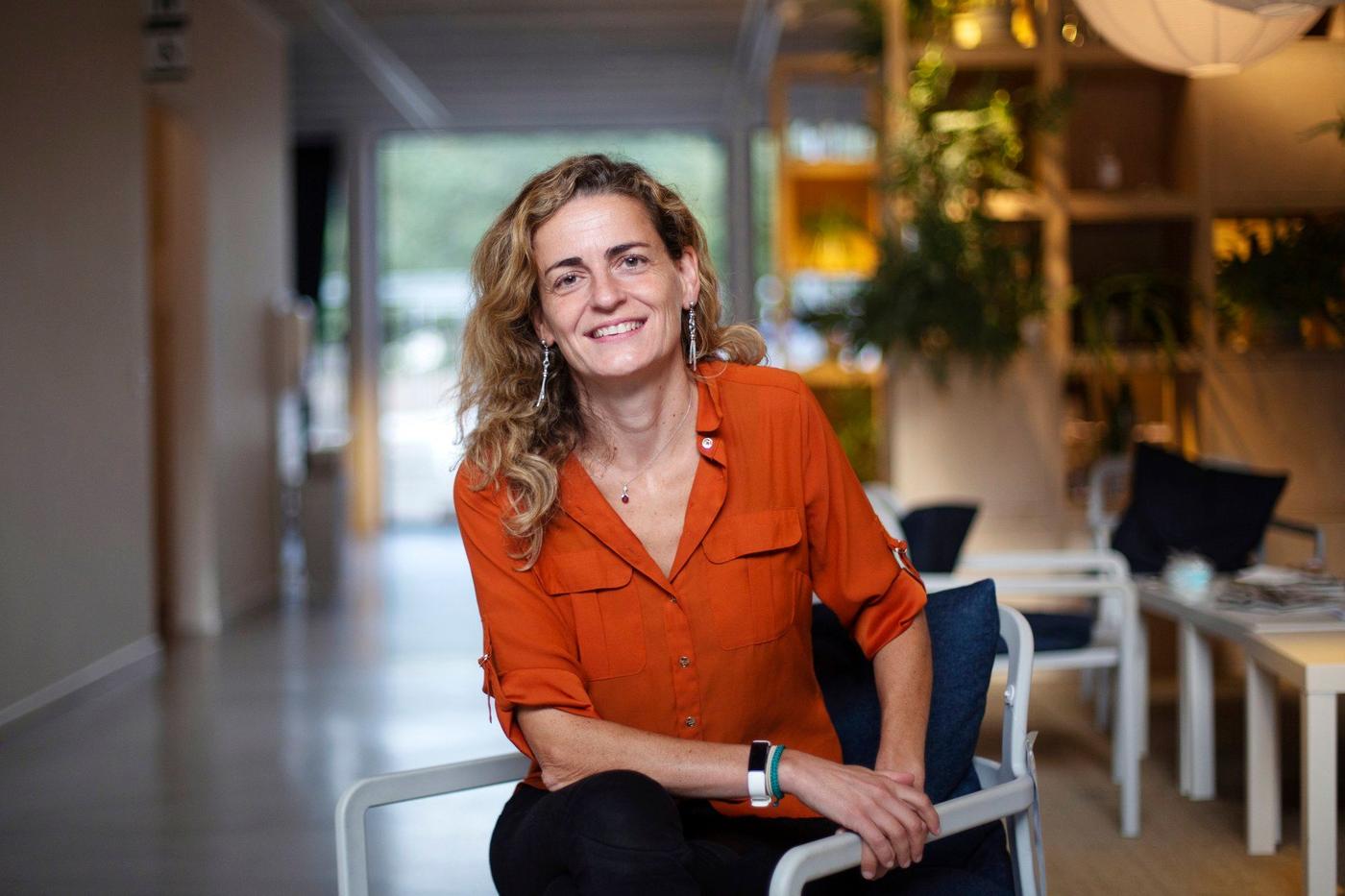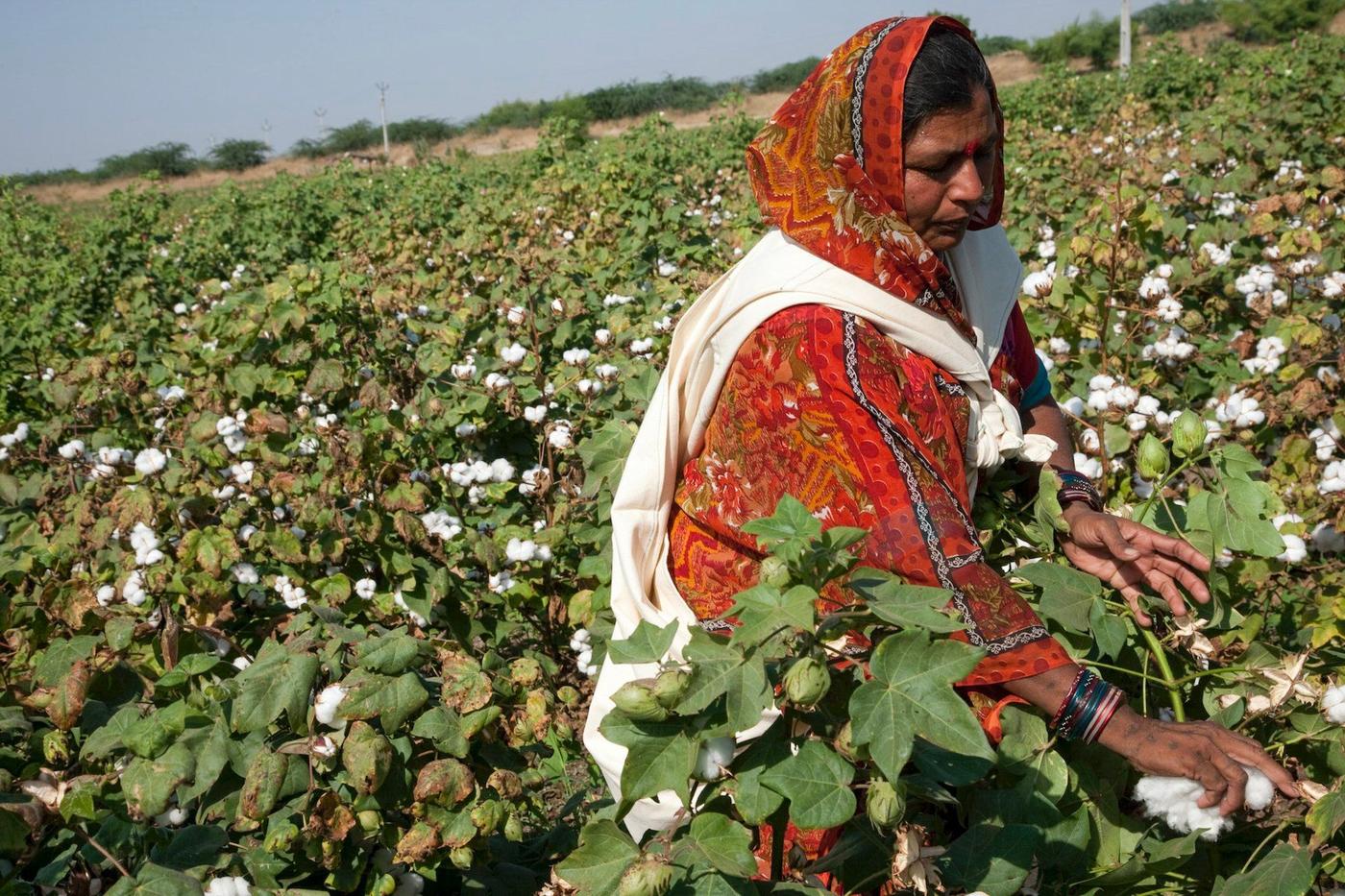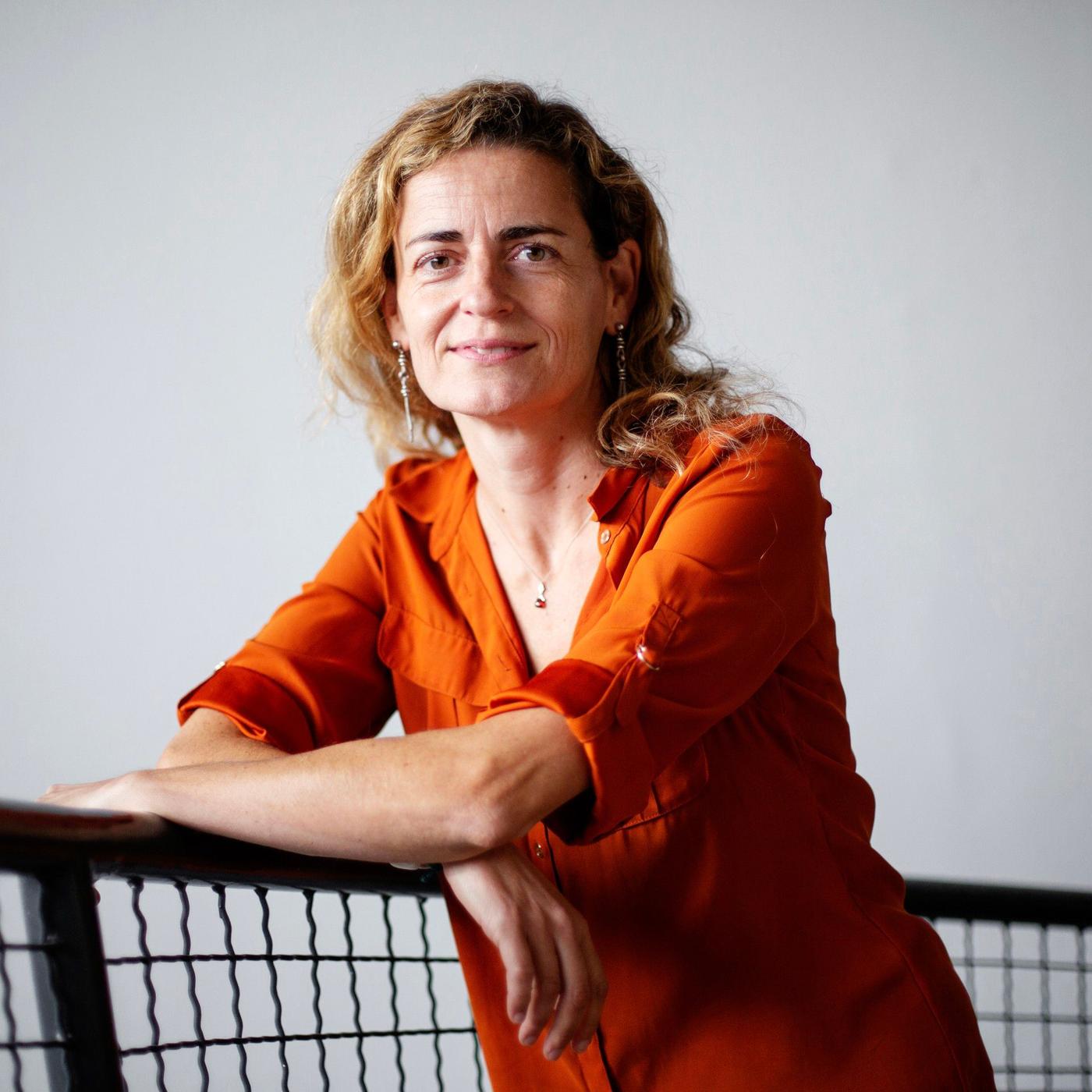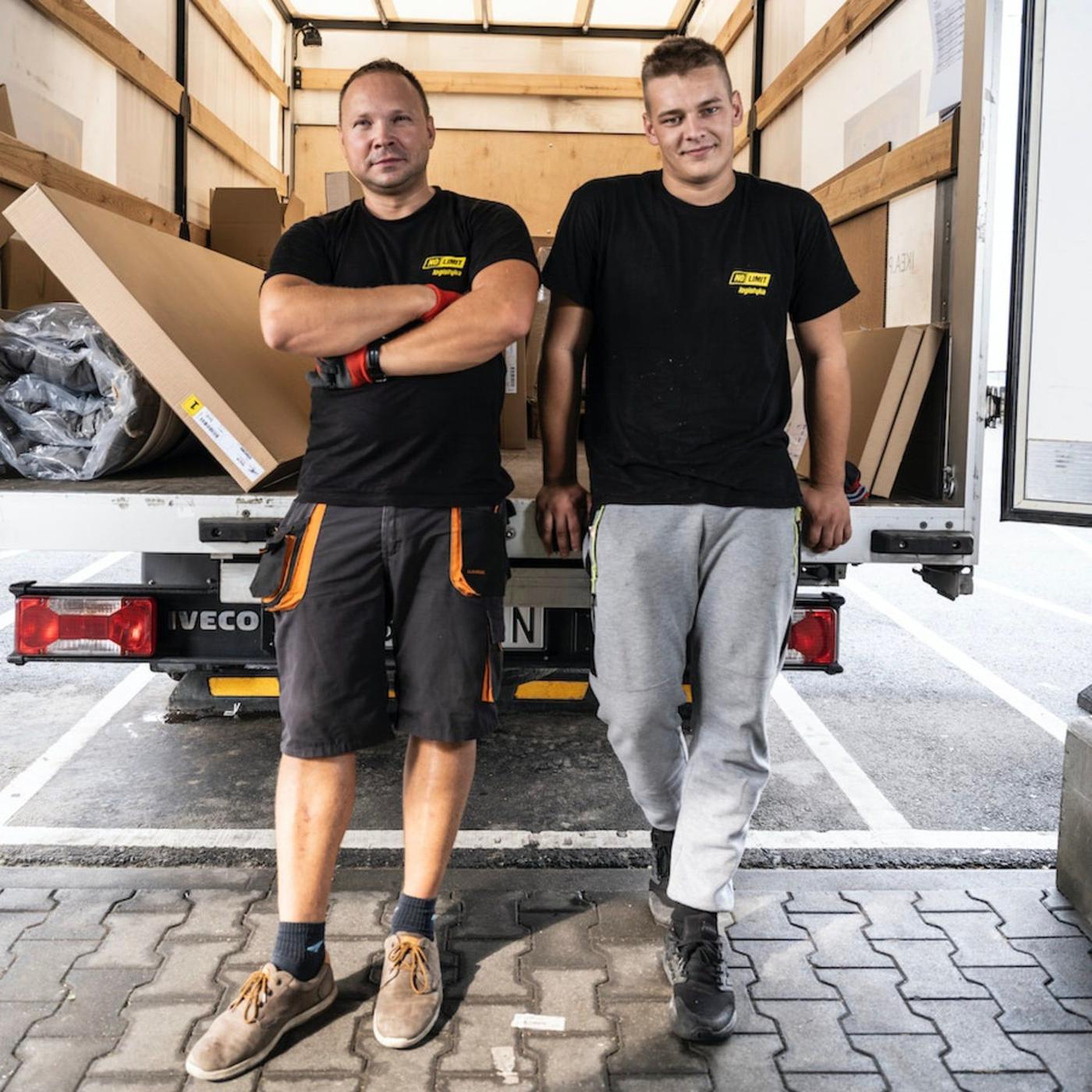
Creating a more sustainable IKEA value chain through IWAY
As a teenager, her chemistry teacher inspired her to care about the environment and make the world a better place. Today, Joana Barata Correia leads the work to create a positive impact on people, society and the planet through IWAY, the IKEA code of conduct for suppliers and IKEA value chain.
Growing up in Portugal in the 1980s and studying in the German high school of Lisboa, she was influenced by two significant movements: the global wave of democratic transformation and the profound shift in how people approach environmental issues. She still recalls the chemistry teacher's calls to care about the environment that inspired her to develop a teenage dream of finding sustainable solutions to let people and the planet coexist in harmony.
"I bought a book called “50 Simple Things You Can Do to Save the Earth”. As the youngest of three, I was running around and making my whole family go nuts. I photocopied pages from the book and placed them all around the house. My passion for studying environmental engineering started there", says Joana Barata Correia, IWAY Development Manager at IKEA.
As time passed, Joana turned those childhood dreams into an educational and professional path and decided to work with sustainability. This is the path that led her to IKEA and IWAY, realising that within IKEA there are more than 50 ways to support people and the planet.

IWAY, the IKEA way of responsibly procuring products, services, materials, and components, is defined as the supplier code of conduct . It's, however, much more than that; it's a system to ensure that IKEA and its suppliers are doing the right things throughout the supply chain regarding social and environmental conditions. At IKEA, partnerships with suppliers are seen as a journey in which both parties grow together.
"At IKEA, we interact with many suppliers and service providers, whether it's producing furniture or transporting products to customers. Therefore, we need to ensure that the people involved in these activities are well-treated and that the environment is protected", says Joana.
Having worked in sustainability and environmental roles for more than two decades, she has been leading IWAY development since 2014. Joana and the many IKEA co-workers continue to build on over 20 years of work done by IKEA, together with its suppliers and service providers, committing to doing business ethically and more sustainably. As a person, Joana is persistent and dedicated to making things happen.
"I think IKEA has a fantastic vision. The culture and values align with my personal values, which is probably why I feel so much at home."

Caring for the environment, people, children's rights, and animal welfare
IWAY focuses on four key areas: positive impact on the environment, decent and meaningful work for workers, promotion of children's rights, and animal welfare.
"First, there is the need to make sure that the people involved across the IKEA value chain are well treated. It's for all the workers in the IKEA value chain, including workers in textile or furniture factories, those who assemble products for our customers, and drivers who deliver products from factories to the IKEA stores," says Joana.
IWAY ensures IKEA products are produced responsibly by people who are empowered and treated with dignity, adhering to the UN Guiding Principles on Business and Human Rights. A due diligence process, including verification by approved auditors, is embedded in the way we work across the value chain to identify and minimise risks.
“Through IWAY, we want to make sure that our actions in the IKEA value chain are not harming the environment and also contributing with positive environmental impacts,” says Joana.
IWAY also acknowledges the direct and indirect impact on people, given the wide range of work across the IKEA business.
"For example, we impact children's rights, and then we can either impact them negatively or positively. So, IWAY is the tool we use to ensure that we respect children's rights across our value chain."

“There is the need to make sure that the people involved across the IKEA value chain are well treated”
A new generation of IWAY
IWAY has evolved over time. In 2020, IKEA introduced a new generation of requirements and ways of working to reflect the changing world.
"In the past, we demanded that suppliers adhere to our social and environmental requirements, and we spent all our efforts to verify their compliance. However, we realised that audits alone do not motivate our suppliers to develop beyond the minimum requirements. To create a stronger positive impact and continuously develop, there are two essential enablers, besides auditing. One is to empower and have regular conversations with suppliers, and the other is to trust them in leading change. Still, audits remain a very important part of the IWAY system, and compliance is, and remains, important."
Among the new IWAY topics is the response to new forms of work, such as work in the gig economy. It involves independent contractors or freelancers using digital platforms to provide services like home deliveries, installation, or consulting. They work independently and do not have an employment relationship with digital platforms. In addition, laws around labour conditions and the social protection of workers in this emerging economy are relatively new or still being developed.
To address this, Joana and the team worked to create additional IWAY requirements to ensure digital platform workers have decent and meaningful work. Minimum requirements include limiting IKEA-related working hours to 60 hours per week and providing at least six consecutive hours of rest within 24 hours. Furthermore, suppliers should ensure that digital platform workers earn at least the equivalent to the legal minimum wage for IKEA-related services.
"There's a lot of talk about automation and people not having jobs in the future. So, we are empowering suppliers to give their workers opportunities to learn skills that are not necessarily connected to their current jobs but, in the future, will increase their chances of getting new jobs. And why is this so important? Because tomorrow some of the current jobs probably will not exist. And people with different skills will have much better opportunities to adjust", says Joana.

The way forward
IWAY is only at the beginning of its journey and the next steps are to continue implementing it further in the IKEA value chain.
"People in the lower layers of the value chain are the invisible ones, but they also deserve decent work, and the environmental impact at this level is also really important. IWAY has been developed in such a way that it's supposed to work for both direct suppliers and different levels of sub-contractors. We know that many of the issues regarding children's rights, decent work, environmental impacts, and animal welfare are not at the direct suppliers. This is where we have our biggest opportunity to make a difference", says Joana.
Every action IKEA takes carries a level of responsibility and must benefit people and the planet in some way. The more respect IKEA and its suppliers show towards their workers, the societies they operate in, the planet, and animals, the more productive, efficient, and sustainable their operations will be.
"When thinking about the experiences over time during my career and personal life, I remain optimistic that we can have a positive impact on people and the planet. However, we need to be much faster and more efficient because the planet and the people cannot afford to wait for more. Time is of the essence. We need to move and act, starting today already."